By Bram Peters – Food Systems Programme Facilitator, Foresight4Food
In the north of Kenya, on the border with Ethiopia, the landscape is expansive and dry. Pastoralism is the main source of livelihood, but to the west of this landscape is Lake Turkana, one of the largest saline desert lakes of the world. Here communities engage, some productively and others reluctantly and out of desperation, in fishing.
In March 2024, the Foresight4Food FoSTr team traveled to the fascinating Kenyan county of Marsabit to facilitate a multi-stakeholder forum to support the co-creation of the new ‘Sustainably Unlocking the Economic Potential of Lake Turkana’ programme.
In Marsabit, stakeholders from around the Turkana Lake, including fishers, traders, service providers, county government technical officers, and non-governmental organizations, came together to analyze the context and co-create future scenarios and intervention areas for a new WFP and UNESCO programme, funded by the Embassy of the Kingdom of the Netherlands.
Together with the World Food Programme and the World Food Programme Innovation team, the FoSTr team held a highly interactive and productive three-day workshop. As most stakeholders mainly spoke Kiswahili, we switched to short presentations with much emphasis on interactive group work. On the first day, the workshop focused on contextual understanding of the Lake Turkana food system as well as the Marsabit county livelihoods, using the Rich Picture mapping exercise. Participants together drew the food system, the geography of the lake, but also the stakeholders, activities, key relations and dynamics.
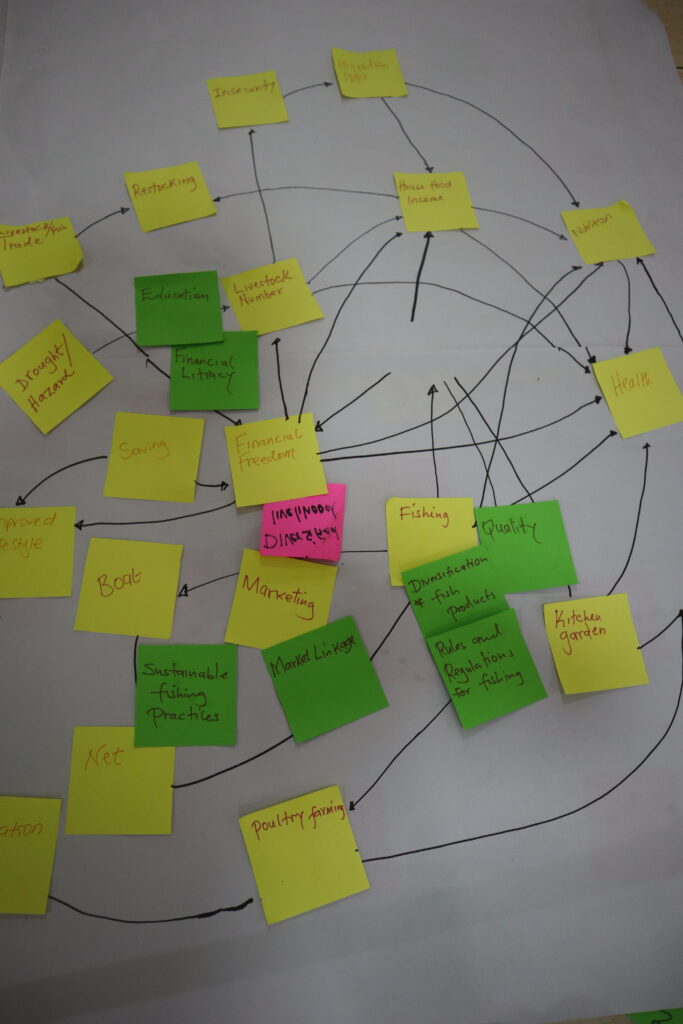
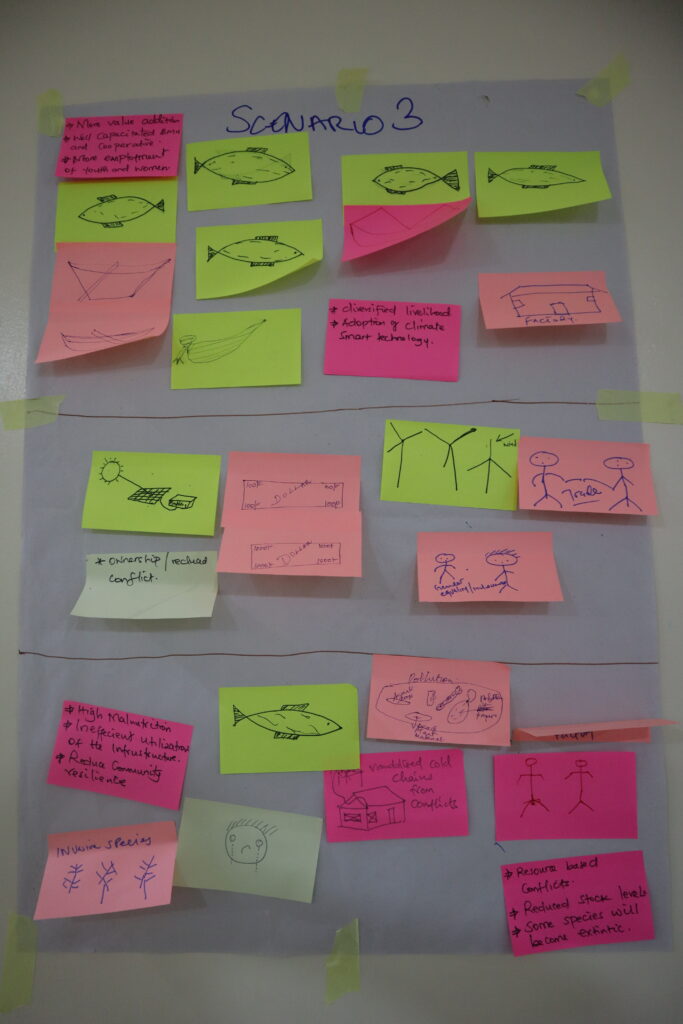
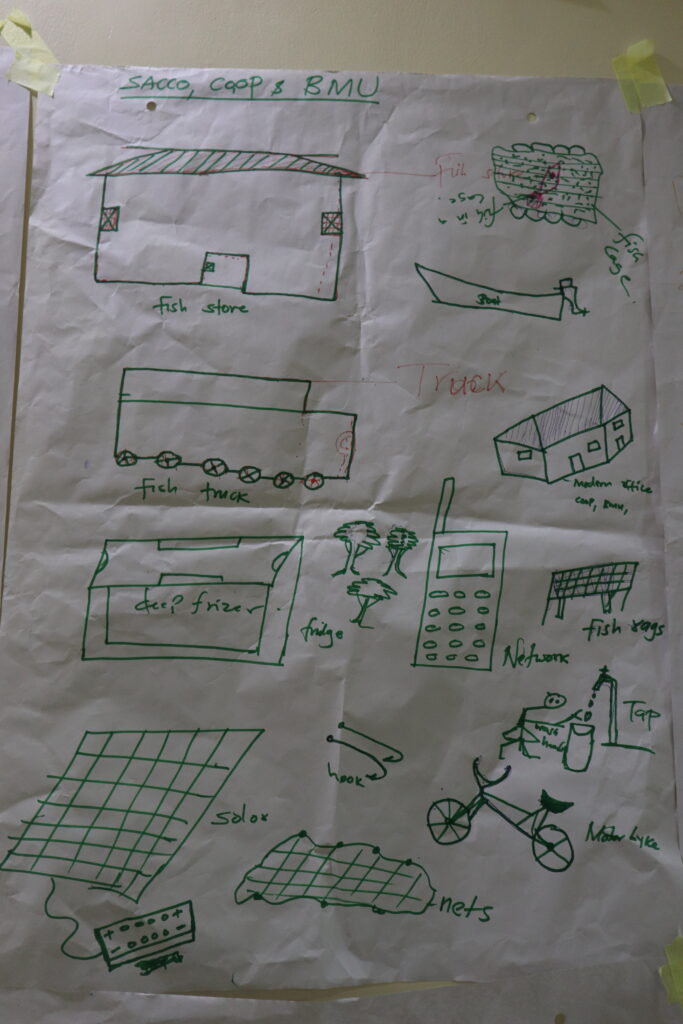
On the second day, the groups presented their deep knowledge of the context to each other and elaborated on this. Workshop participants tackled key trends shaping the food and livelihoods system: groups discussed how various themes (for example: lake water levels, fish stocks to income sources, conflict, and education) changed over time and what they expect to happen 10 years into the future. Important in this discussion is their analysis of what driving issues would influence change in the future.
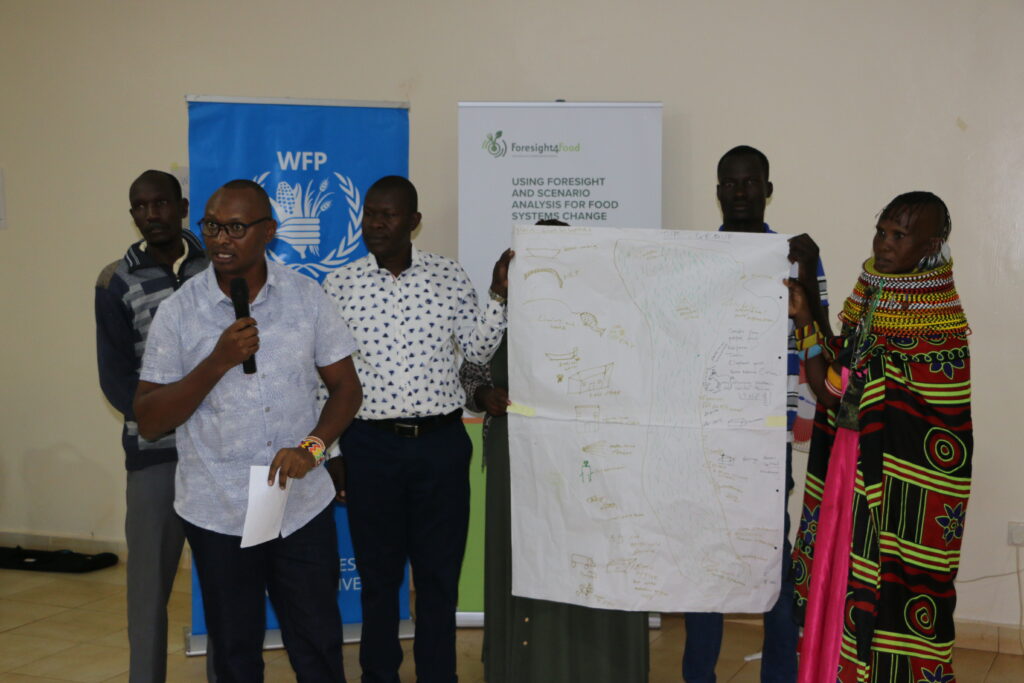
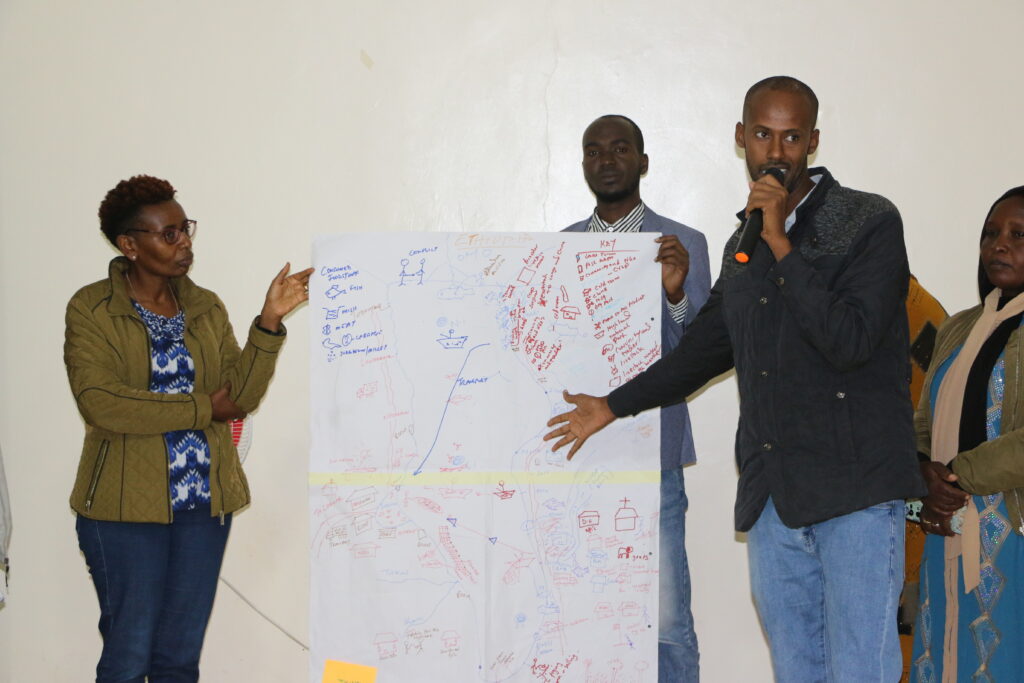
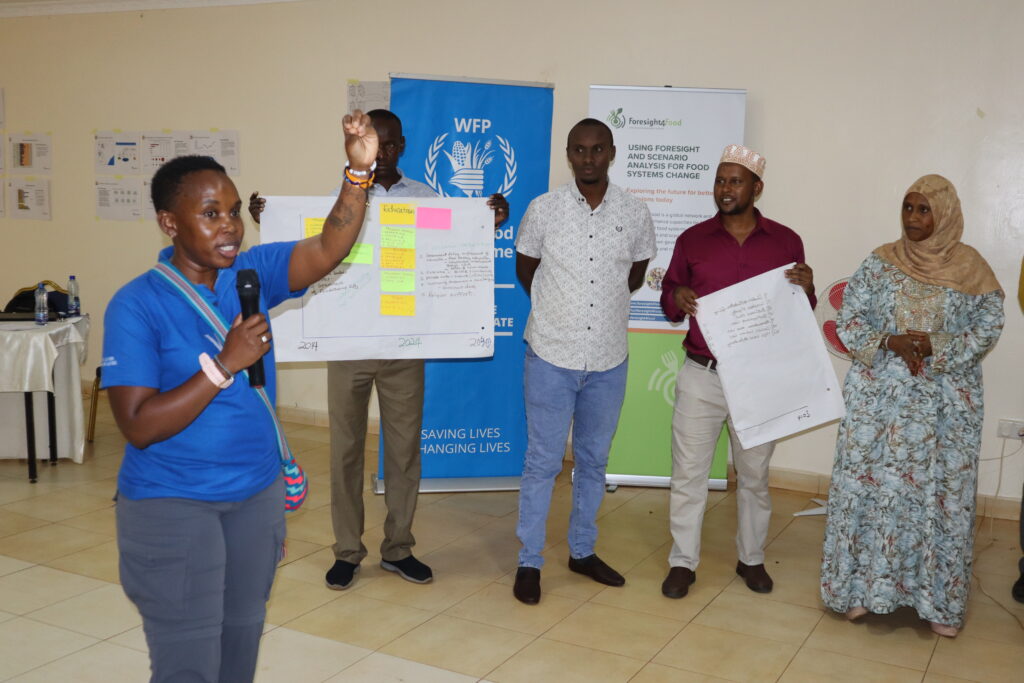
5 scenarios were created for the future regarding the fisheries sector and supporting livelihoods, as well as an in-depth discussion on key entry points for intervention in the system. These scenarios had names that described these futures succinctly:
- ‘Tumaini Paradiso’, a future with a growing fishing sector, inclusive benefit sharing and sustainable natural resource management;
- ‘No retreat, no surrender’, a situation in which the benefits of a growing fisheries sector are controlled by a few;
- ‘Short gain, long pain’, a scenario where the fisheries sector grows and livelihoods improve around the lake, but the environment is not maintained;
- ‘Gasping blue economy but others rise’, is a future where the fisheries sector remains marginal for communities, but other sectors are developed that also contribute to inclusive development and environmental sustainability
- ‘Darkness in life’, a bleak outlook where none of the envisioned sustainable economic development around the lake delivers and where climate resilience is low, and conflict is rife.
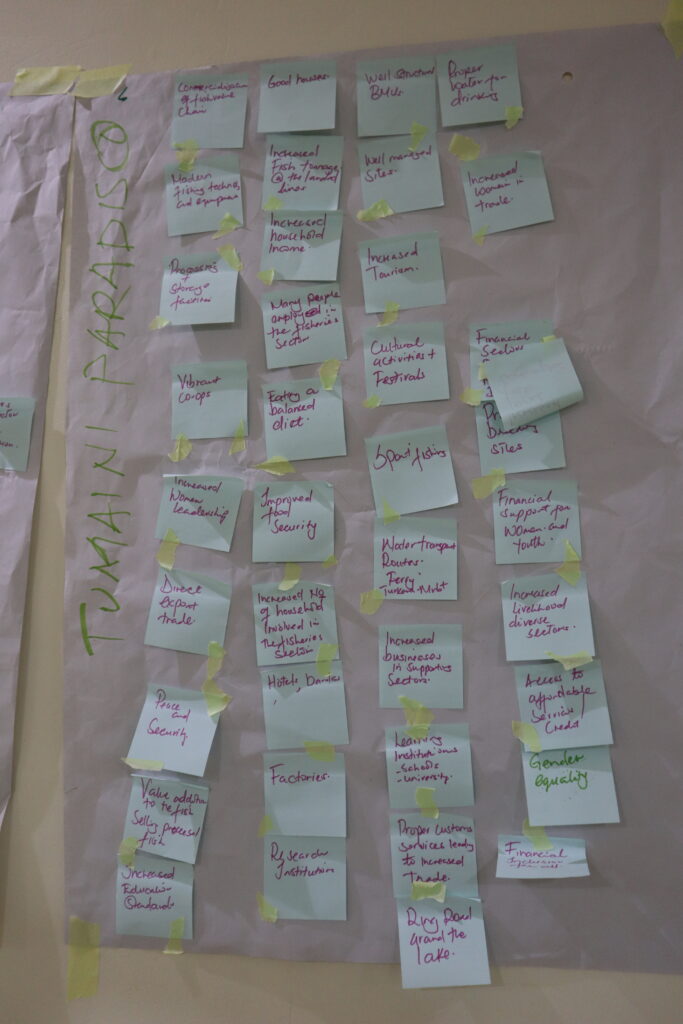
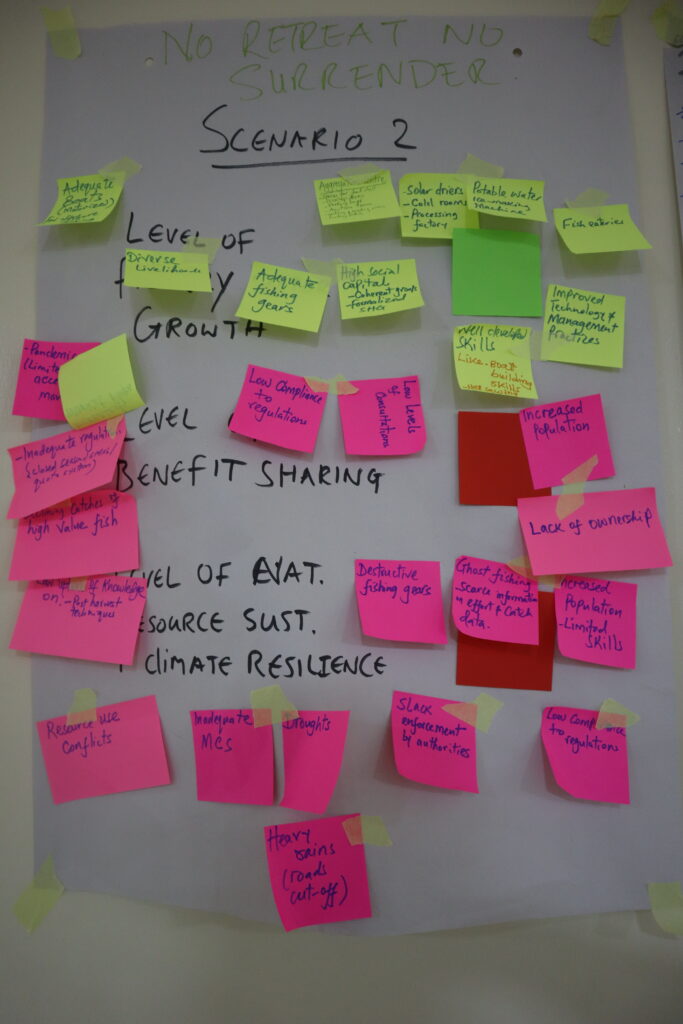
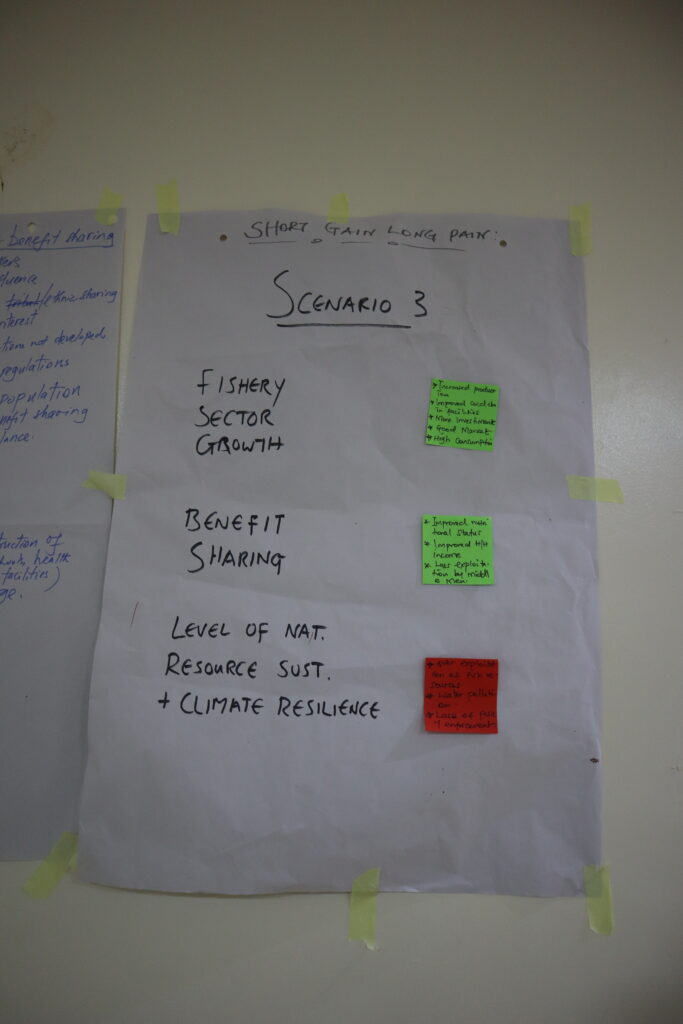
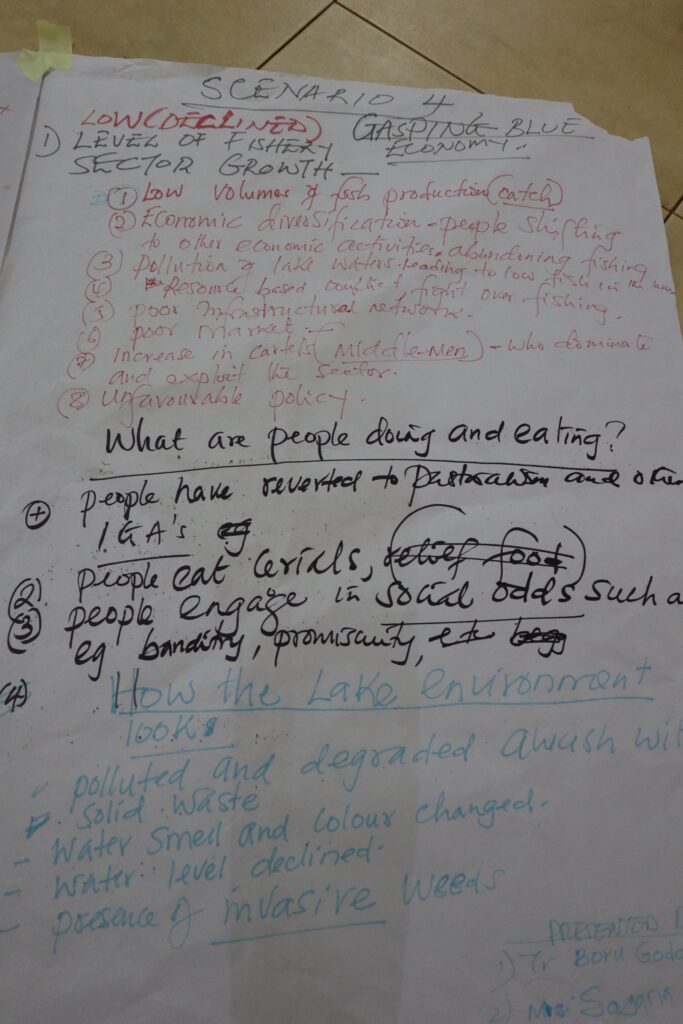
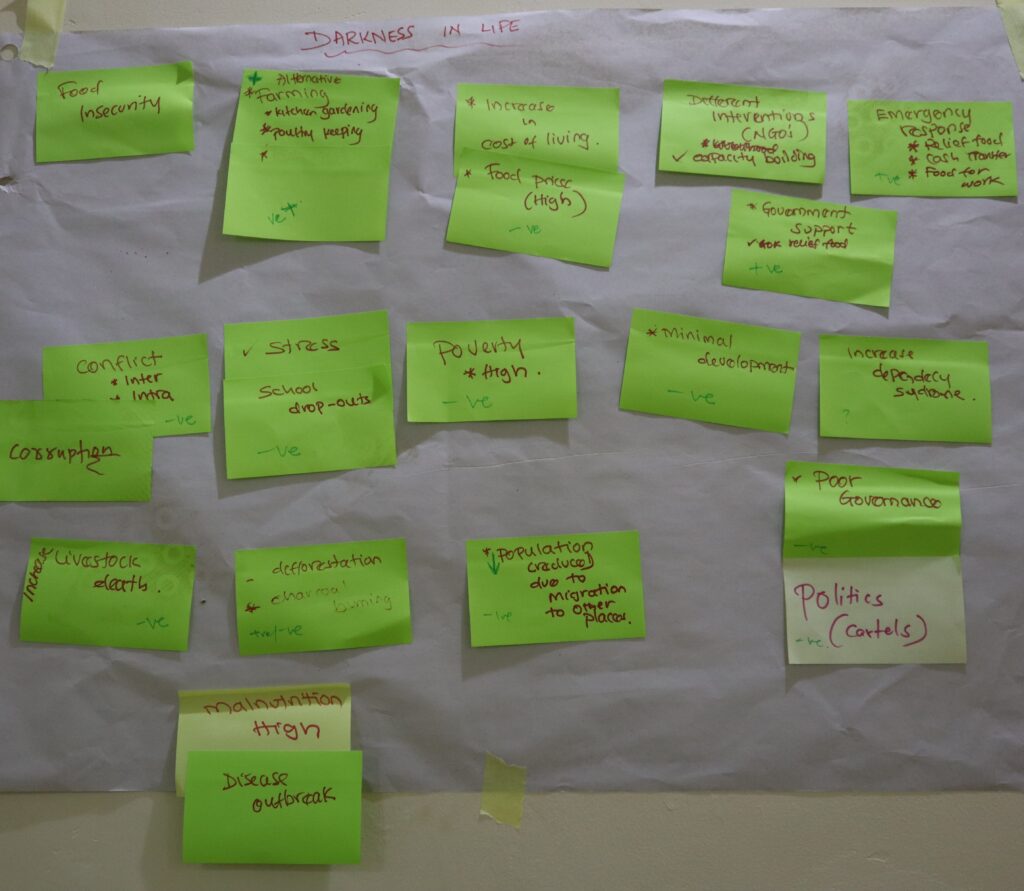
Different stakeholders participating in the workshop had different opinions on the likelihood of certain scenarios emerging. Some imagined the situation worsening, while a few viewed the future more positively. These reflections clearly showed a combination of outlook of participants as well as the signals they interpret from the current situation and the trends seen now. Interestingly, none of the stakeholders felt the ‘Paradiso’ scenario was likely, showing that the programme needs to be modest in its systemic ambitions, but also be ready to do things very differently. These scenarios showed what could become a very relevant frame of reference to the stakeholders as well as the programme implementors.
On the last day of the workshop, participants explored a common vision for the future, and how the food system is currently working. This led stakeholders to have a first try at exploring what is needed to change that system toward the common vision.
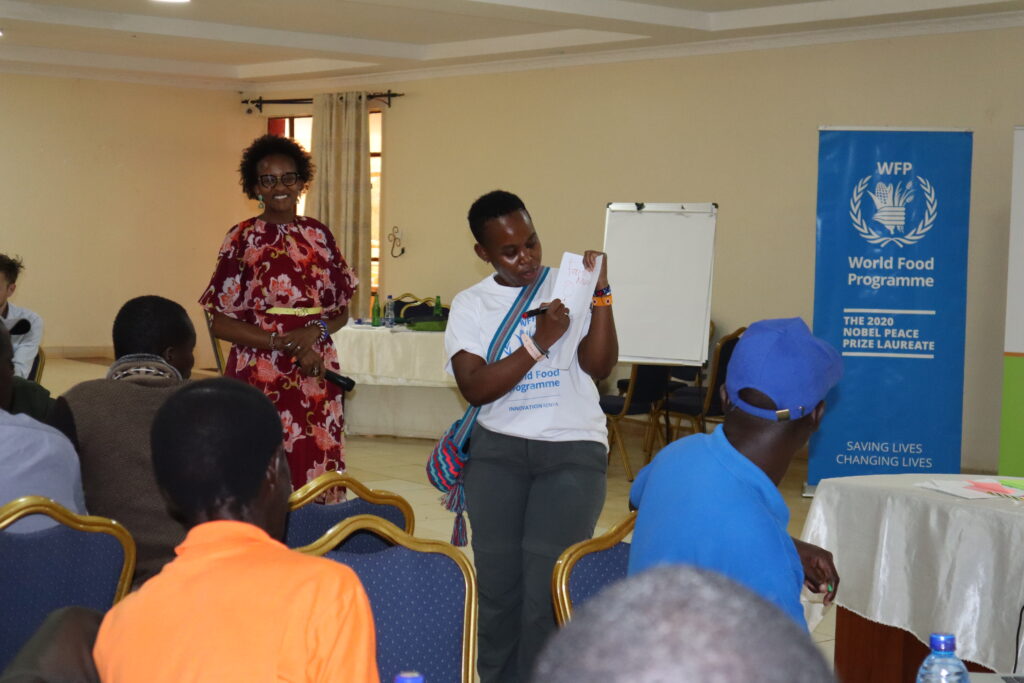
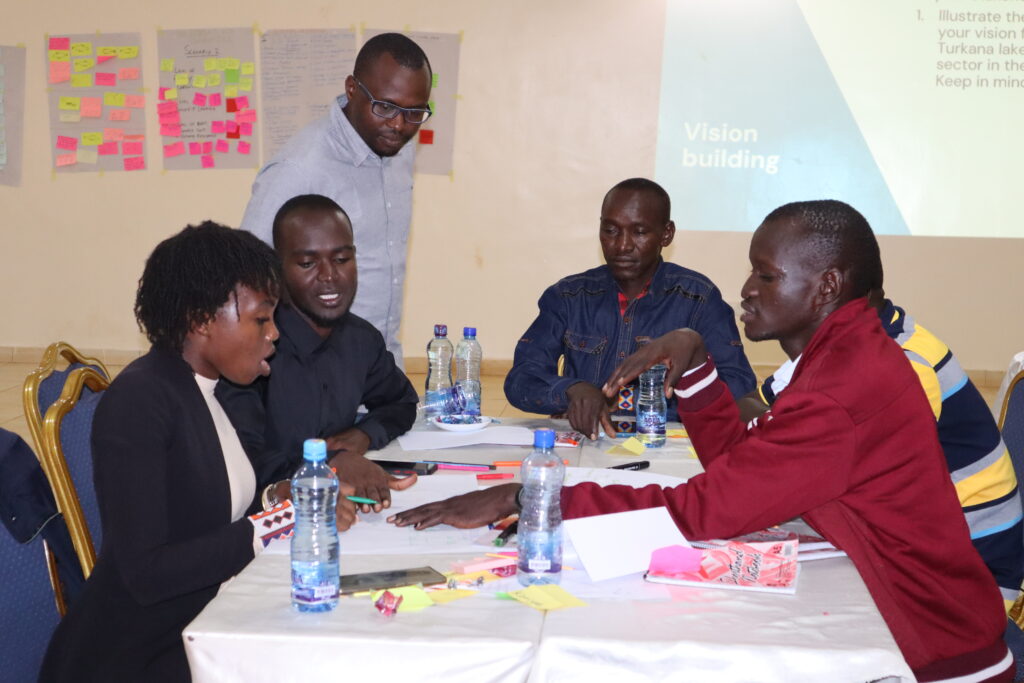
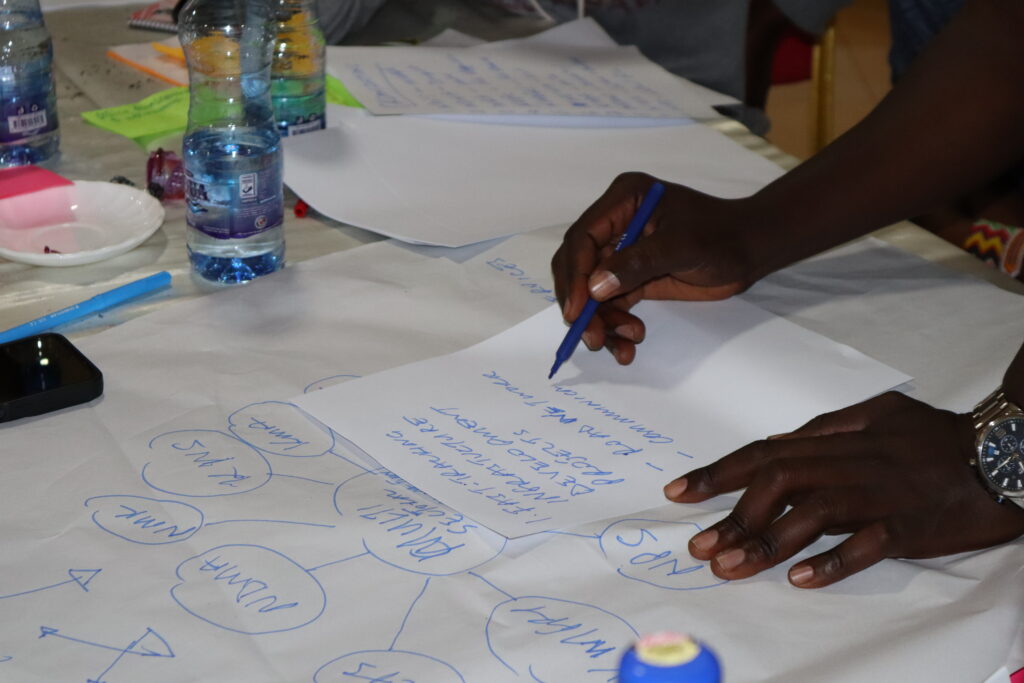
At the end of the workshop, I felt highly positive about these fruitful discussions that enabled participants to think about what might happen to the Marsabit food system in the years to come, and what factors would influence these changes. In addition to that, the insights gathered through the multi-stakeholder forum are expected to not only support the inception phase of the programme but will also support multi-stakeholder engagement throughout the programme.
The Foresight4Food FoSTr team will continue to support the World Food Programme team in realizing the ‘Sustainably Unlocking the Economic Potential of Lake Turkana’ programme inception phase. A follow-up workshop will take place in Turkana County from March 25 to 28, with stakeholders from that side of Lake Turkana.